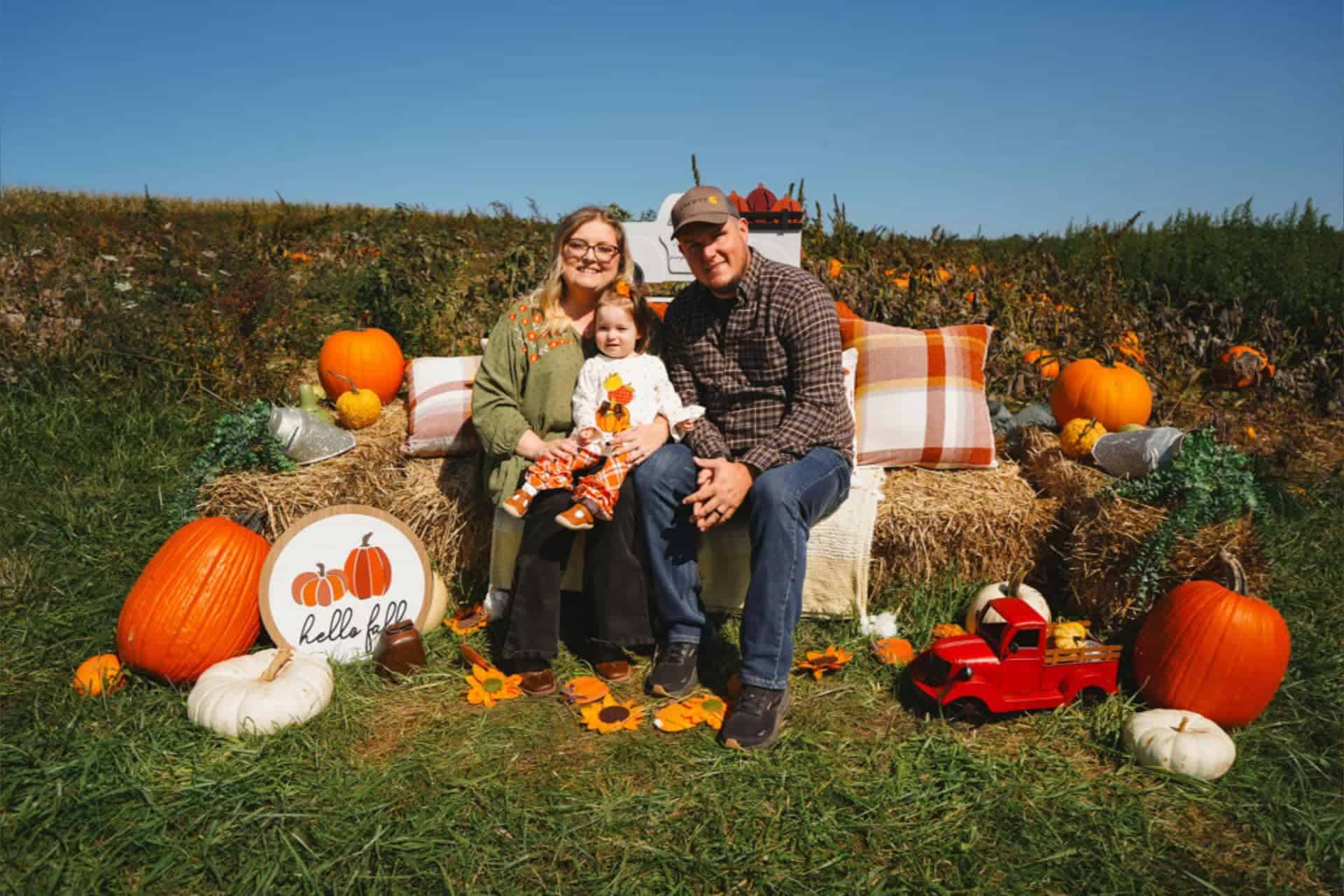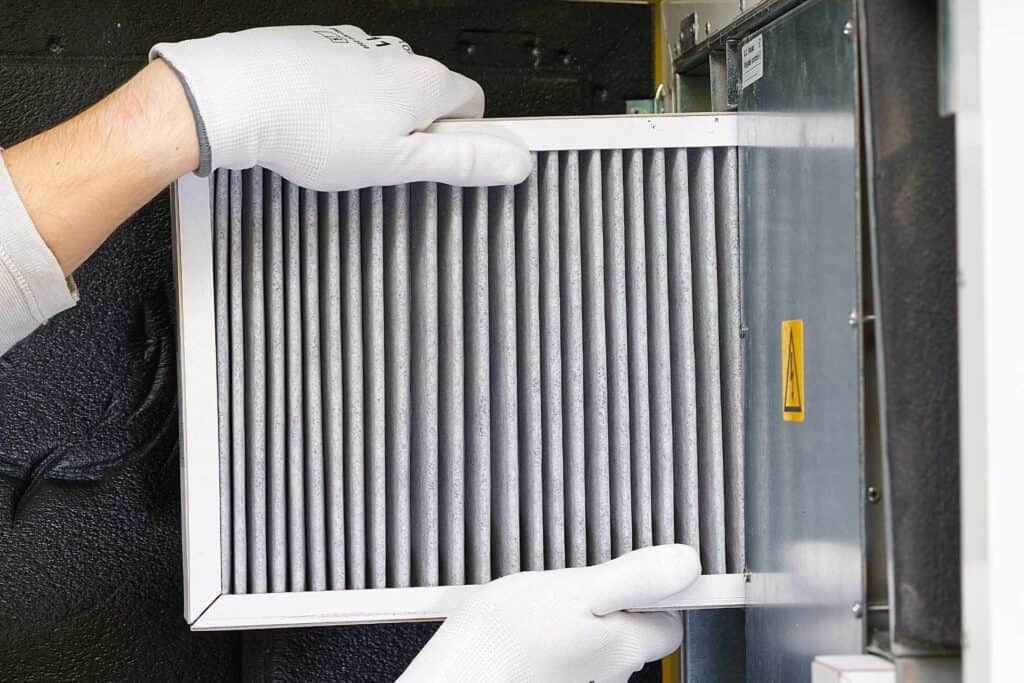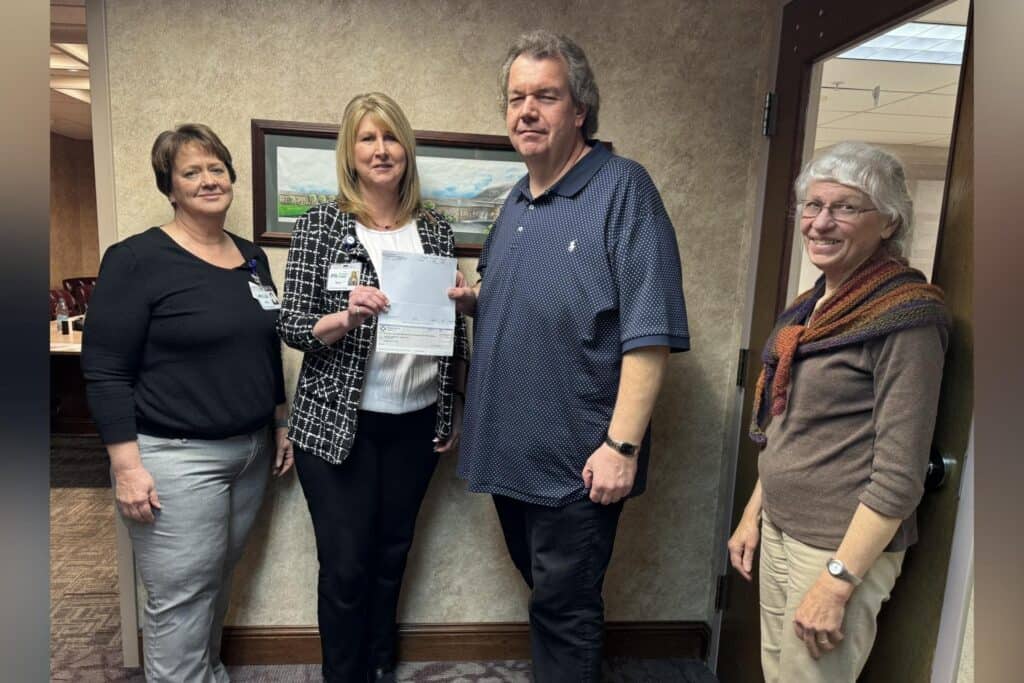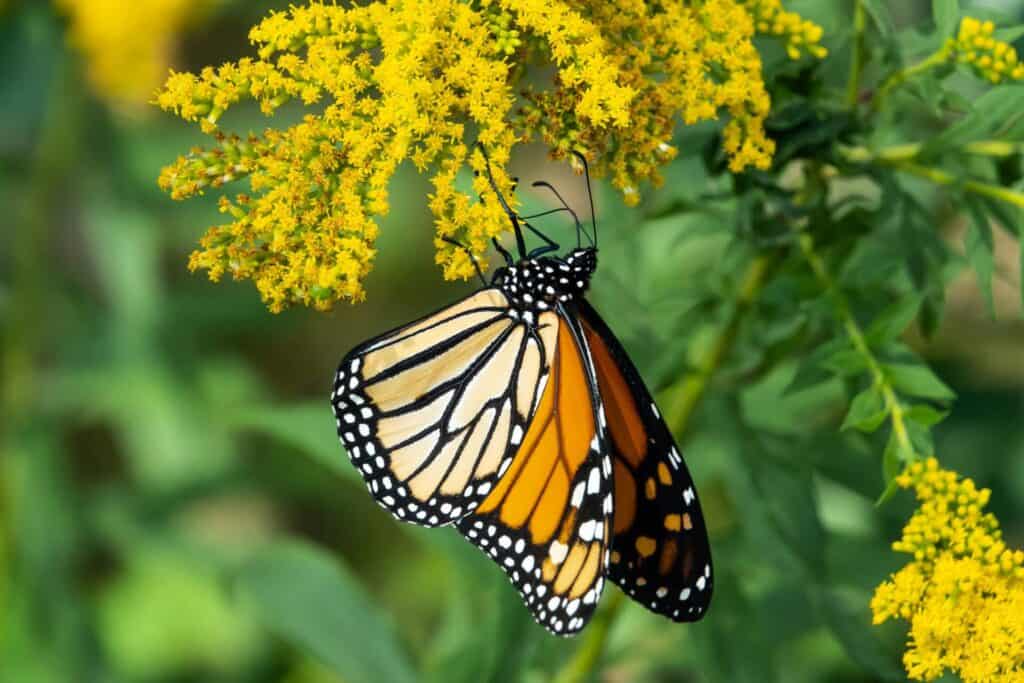Encouraged. Motivated. Resilient. These are just some of the words WVU Medicine Transplant Alliance team members and others use to describe 29-year-old Laiken McKinney.
Unfortunately, McKinney’s medical issues began at an early age, and being resilient was her only option. “She had to be,” Melinda Shrewsbury, McKinney’s mother, said. “She’s had no choice.”
McKinney was only 8 years old when she was diagnosed with chronic kidney disease (CKD), a progressive disease that occurs when the kidneys are damaged and slowly lose function over time. There is no cure for CKD, but treatment can help slow its progression. According to the National Kidney Foundation, 37 million adults in the United States are living with CKD.
“Growing up with knowing that eventually she would have to have a transplant, and you know, thinking each year, ‘Well we didn’t have one this year,’” Shrewsbury said. “She just kept going.”
McKinney married her husband, Dylan, in 2018. The two dreamed of starting a family, but McKinney learned she had polycystic ovary syndrome, a chronic hormonal condition that interferes with ovulation, making it difficult to become pregnant.
By the time McKinney turned 28, her kidney disease had advanced to stage four, or severe kidney function loss. Her kidneys, functioning at a mere 15 to 29 percent of their normal capacity, were at their last stage before failure.
But with this diagnosis also came some positive, unexpected news.
“I found out I was pregnant,” McKinney said.
Because of her advanced kidney disease, she was monitored closely by her medical team for the first few months of her pregnancy. “When I was about four to five months pregnant, that’s when I had to start dialysis,” she said.
McKinney received dialysis six days a week for four hours a day while she was pregnant. However, her CKD caused a growth complication to her fetus called intrauterine growth restriction (IUGR). Babies affected by IUGR fail to grow at a normal rate during pregnancy.
Due to the IUGR, which can also cause premature birth, McKinney gave birth to her daughter, Madeline, at 34 weeks and four days. The baby was rushed to the neonatal intensive care unit (NICU) because doctors were concerned about her size. Thankfully, the baby suffered no major complications but remained in the NICU for nearly four weeks.
McKinney continued dialysis and cared for her newborn while she also prepared for the next step in her CKD treatment – a kidney transplant. Her family members were not viable donors, so McKinney turned to finding a suitable deceased donor. She was placed on two transplant lists, including one with the WVU Medicine Transplant Alliance, based at J.W. Ruby Memorial Hospital. Through it all, she remained upbeat.
“She was wonderful from the beginning,” Bryan Bird, B.S.N., R.N.-B.C., McKinney’s pre-transplant and waitlist coordinator at the WVU Medicine Transplant Alliance, said. “She was very encouraged and motivated with the transplant process. She always asked great questions and was very engaged.”
Kidneys are the most needed and most transplanted organ in the United States. Unfortunately, the demand greatly outweighs the supply – in fact, the National Kidney Foundation states that, depending on circumstances, patients can wait two to five years for a kidney. According to the Organ Procurement and Transplantation Network, West Virginia had 163 people on the kidney waiting list as of November 2024. The national number of people waiting for a kidney is more than 95,000.
Additionally, matching organs with patients is a complicated process that factors in the patient’s circumstances and medical needs, blood type, organ size, specified medical facts for the organ needed, and geographic location of the patient to the donated organ. For kidney donations, waiting time, level of immune system match, and survival benefit are also considered.
“It was tough,” McKinney said about waiting on the transplant list. “It was just, you know, constantly, ‘Is today going to be the day that I get the call?’ That was an everyday thought in my mind.”
Kinney didn’t wait very long until her first call. “I was on the list maybe a couple of months – not very long,” she said. “I got one call from Charleston. I got there, was in pre-op, and they were looking at the kidney.” McKinney recalls that the doctor came back to pre-op and told her that the kidney was damaged and could not be used. “That was my first call, and that was the most devastating for me.”
A few months later, McKinney received two calls from the WVU Medicine Transplant Alliance.
“The first call, they said I was seventh in line for the kidney,” she explained. However, tissue typing revealed the kidney was not compatible.
“The second time, I was six or seven on the list, and same thing – I wasn’t compatible,” McKinney said. “So those were very tough calls, because I thought, ‘This is it. This is the call.’ And then it didn’t work out. I was very, very devastated and did not think it was going to happen.”
After waiting for about one year, the call McKinney had been waiting for finally came from the WVU Medicine Transplant Alliance.
“It was a Wednesday,” she recalled. “And they told me they had a possible match, but it was going to be a lot of downtime, because they still had to do a lot of testing on the donor and the kidney.”
She was informed that she was sixth in line for the kidney. McKinney figured this would most likely be a repeat of her previous calls – there were a lot of people ahead of her and somehow things would fall through.
However, by Friday she learned that she moved up to third on the list.
Late Saturday evening, McKinney spoke with a transplant coordinator, who said the kidney was now narrowed down to her and one other candidate. “About 10 minutes later, she called me back, and she said, ‘You’re primary.’
“I lost it – literally bawling crying. I was trying not to get my hopes up, because I knew I could get there and something with the kidney could go wrong. But I was primary, so it was hard not to.”
McKinney was instructed to be at Ruby Memorial Hospital early the next morning. When she arrived, she was prepped for surgery while the kidney was also prepped and tested. By 2:30 p.m., the transplant team wheeled McKinney back to the operating room.
After surgery, McKinney recalled the first words she spoke. “I just remember waking up and asking if it worked. And they said, ‘Yes, it worked.’”
Since the transplant, McKinney has not needed dialysis. She is on three anti-rejection medications for life and follows up with her transplant team weekly. As time passes, McKinney won’t have to follow up as often, but she will always be under a doctor’s care.
“We follow all our patients for life,” Jessie Danforth, R.N., McKinney’s post-transplant coordinator, said. “I always tell them I’m like another family member.”
And family is what McKinney said helped her pull through it all. She credited her husband, her mom, and her mother-in-law, Daphne McKinney, for helping her by taking her to appointments, stepping in to care for Madeline, and just helping in general. Her daughter, who McKinney called a “miracle,” was the ultimate motivator.
“It has really opened my eyes, and it shows me how much a family can come together and be there for each other,” McKinney said with emotion in her voice.
McKinney praised the staff at Ruby for their care before, during, and after her transplant. “When I was in the hospital, they were all so great,” McKinney stated.
She also commended WVU Medicine’s transplant team. “If I’m feeling nervous, you know, about my numbers or anything, they’re so good at explaining, and they have just been amazing,” McKinney said.
But McKinney’s positive attitude and grit has not gone unnoticed by her care team.
“Laiken is a very pleasant and resilient lady who has endured numerous illnesses since an early age, but she has prevailed,” Rajeev Sharma, M.D., the transplant program’s surgical director of Kidney Transplant and McKinney’s surgeon, said. “It gives me immense pleasure to see her now enjoying a normal life with her family, without the need for dialysis.”
Danforth echoed Dr. Sharma’s sentiments. “She’s resilient. She’s a role model.”
“I was so excited for her when we got her kidney offer, because I knew a transplant would be life-changing for her and her family,” Bird said. “I’m glad she’s doing well post-transplant and is sharing her story.”
McKinney and her entire family now have a different respect for organ donation. The family strongly advocates for it, and once McKinney’s restrictions are lifted, she hopes to find ways to support this special cause – a cause that meant so much to a person that McKinney doesn’t even know, but to whom she remains the most grateful.
“I just know that they were younger,” she said of her donor. “I don’t know names or anything like that.”
McKinney, her husband, and her mother are currently writing letters to the donor’s family after learning that the family asked if the organ had been placed. “Hopefully, they’ll reach out once we send those letters,” McKinney added. “If not, I totally understand. It’s a hard thing to do. I just wanted to let them know that I’m very, very grateful for them and their loved one’s selfless donation.
“I just want to make sure that if the donor’s family gets to see this, that they know how grateful and how much gratitude I have for them and their loved one, because they really gave me a second chance of life.”
For more information about the WVU Medicine Transplant Alliance, including living donor kidney donation, visit WVUMedicine.org/Transplant. To register as an organ donor, visit RegisterMe.org/WVUMedicine.















